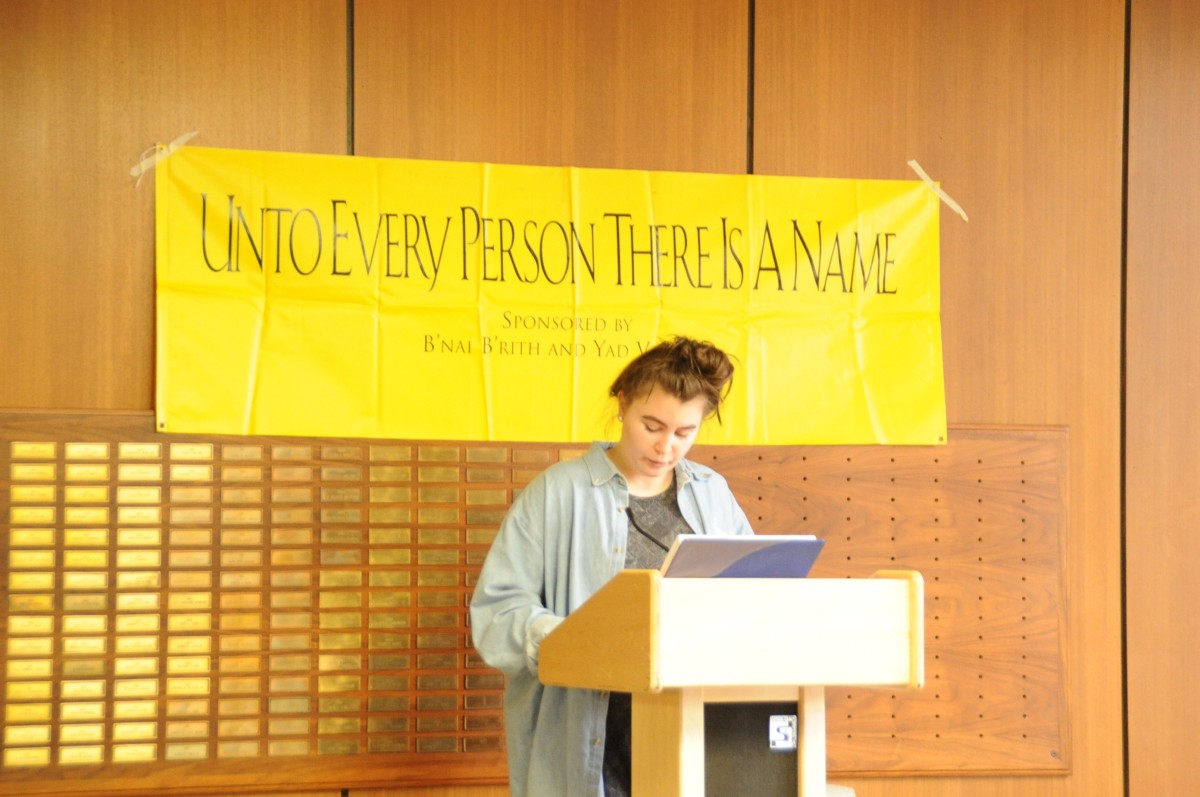MORGANTOWN — Basya Tesyar didn’t have a say during Hitler’s Third Reich.
Zlata Milevitch and Mira Borochina didn’t either.
Nor did Nathan Kaploun.
Same for Sonya Bant and Chana Modrzewski.
And Sarah Mahler.
And Rashel Strimban.
And Shiva Rosina.
And Riva Gilroy.
And Rakhel Genin.
But all 11, and thousands more like them, got the last word Thursday morning at the WVU Mountainlair.
Members of the university’s Hillel House and others from the Morgantown community made sure of it.
They did so by simply saying their names out loud and into a microphone.
The occasion was the annual Yom Hashoah, or Holocaust Remembrance Program, which is sponsored on campus by Hillel, WVU’s Jewish student group.
It concluded at noon, in an area near the Mountainlair Vandalia Room.
There weren’t many trappings to it — a podium, a microphone.
And boxes containing binders of names.
The binders carry a grim roster which includes 6 million Jews, plus another 6 million: Gypsies, homosexuals, the emotionally and physically infirm, all deemed unworthy of a master race.
The reading went for 24 hours straight, and that, Mollie Fisher said, only cracked the first few binders.
Remembering … what you didn’t know you knew.
“Of course, you can’t read all the names, but you can read a lot of the names,” said Fisher, a WVU senior and the president of Hillel.
Most of the names read Thursday morning were those of children, who were among the dead in concentration camps across Germany and Russia.
For Fisher, who grew up in a devout Jewish home in Vineland, N.J., each one is an elegy.
“It’s rough when you see the ages listed next to their names,” she said.
“You’re looking at kids who were 4 years old, 5 years old. They never had a chance to live.”
Along with their ages, there’s always a listing of home: A city or a ‘burgh or a village.
Robert Frost once said that poetry makes you remember what you didn’t know you knew.
David Statman, a graduate student who has taken part in the ceremony for the past couple of years, hits those same chords of memory whenever he has a binder and microphone in front of him.
He’s always drawn up short when he reads the name of someone from the village of his great-great grandparents in the Ukraine.
“My family came here early, before the war,” he said. “But I’ll see that name and I’ll think, ‘That could have been me.’”
‘Human nature doesn’t change’
Back in his hometown of Vienna, Va., Statman wasn’t all that devout. Neither was his family.
And that’s even with his mother being a convert to Judaism. She was Methodist when she started dating his dad.
Statman tapped into the faith of his fathers on the campus of WVU, courtesy of friends who frequented Hillel.
“How about that?” he said. “I had to come to West Virginia to learn how to be Jewish.”
He had his bar mitzvah three years ago in Morgantown — on St. Patrick’s Day — when he was 20.
His parents were there, and so were buddies from back home.
“That was something,” he said, smiling.
In the meantime, other students not taking part in the readings Thursday would stop talking and slow their pace when they walked by in the normally bustling Mountainlair.
Maybe it was just a matter of courtesy.
Or maybe they too were remembering what they didn’t know they knew.
“That’s why it’s important that we keep reading these names,” Statman said.
“In terms of history, 1945 isn’t that long ago. And if that kind of horror can happen then, it can happen now. Human nature doesn’t change.”




